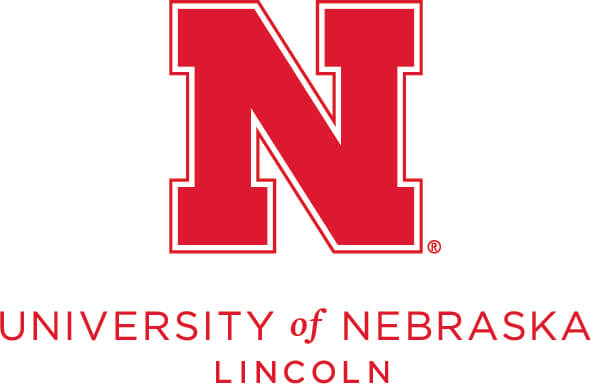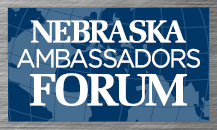Schedule of Events
Countdown to the Forum
Day(s)
:
Hour(s)
:
Minute(s)
:
Second(s)


October
28
OMAHA AMBASSADORS FORUM AND LUNCHEON
TIME: 11:00 a.m – 1:00 p.m.
LOCATION: Scott Conference Center
OMAHA AMBASSADOR AND STUDENT DISCUSSION
TIME: 2:00 p.m – 3:00 p.m.
LOCATION: Milo Bail Student Center (MBSC), Nebraska Room, 2nd Floor

October
29
LINCOLN AMBASSADORS FORUM
TIME: 2:30 p.m. – 4:00 p.m.
LOCATION: UNL Willa Cather Dining Complex, Red Cloud Room
Overview
Southeast Asia needs more policy focus from the United States. Trade with the area now exceeds half a trillion dollars annually. Thirty one percent of US agricultural exports go to this area while India’s economy alone will very soon be larger than that of Germany or Japan. Reorienting critical technical manufacturing sectors to reduce dependence on China is increasingly part of the picture as well. China has made strategic inroads in the area competing for influence and profits. The US is playing catch-up in the Philippines and in Pacific islands critical to the defense of Taiwan.
What is US policy toward the area and what should it be doing? How is diplomacy executing and supporting policy? The 2024 Ambassadors Forum will put several key areas under the microscope for answers.
Trade and Economics: Since America walked away from the Transpacific Partnership (TPP) America has lacked a coherent trade policy in the region. Does it matter? How does it relate to our search for dependable partners for production of critical technical components and material? Will the Indo-Pacific Partnership achieve anything? How do our industrial policies through the CHIPS and Inflation Reduction Acts match up with Chinese competition and how should we promote our exports?
Security: Security is not a single policy. Myanmar’s insurgencies and refugees embroil neighbors and create refugee flows and tensions with states like Bangladesh. Indo-Chinese rivalries sometimes spiral into fighting between these nuclear neighbors while some question whether US-Indian relations have reached a plateau. What are US security interests and how do our definitions match our diplomacy and our resources?
Democracy, stability, and diplomacy: The Biden administration considers democracy a key pillar of foreign policy. Yet only some of the nations of East Asia are democratic. And with those that are, our voluble criticisms create friction in otherwise friendly relations. How do we balance American interests in stability, US domestic prosperity, and security? Are we hypocrites or realists?
